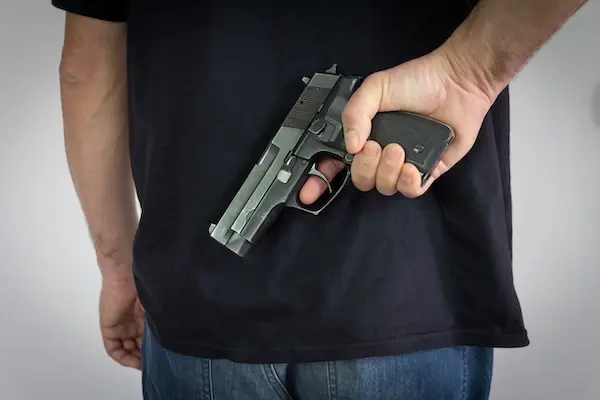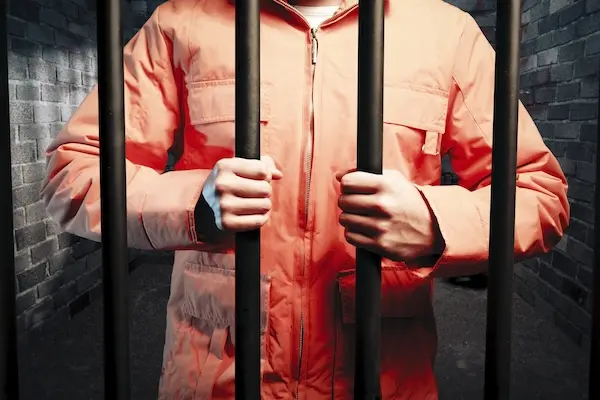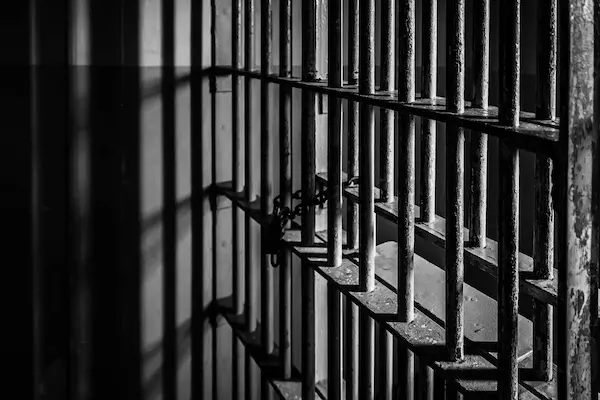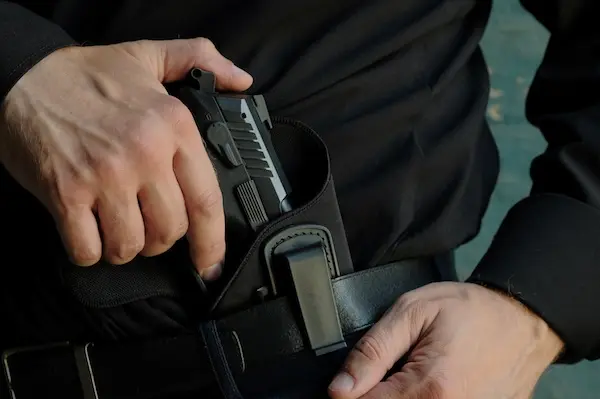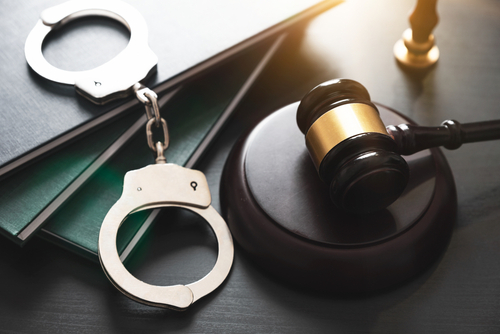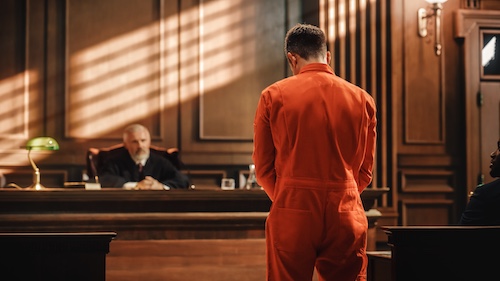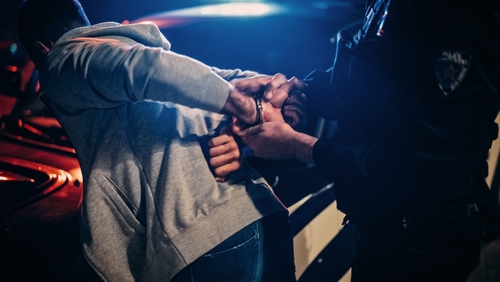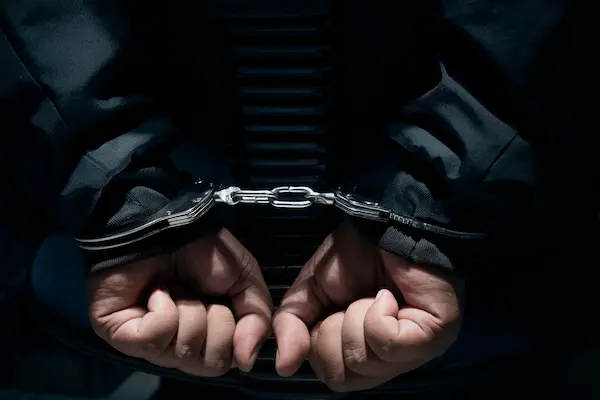Facing Firearm Charges as a Convicted Felon
If you’re facing charges related to the possession of a firearm and have a prior felony conviction, it is crucial to seek guidance from a gun charge defense lawyer who can help you understand your legal options. Under federal law, possessing firearms as a convicted felon is a serious offense with life-altering consequences.
This comprehensive guide explores the federal penalties for being a felon in possession of a firearm, explains key terminology, highlights the role of federal regulations, and compares how states like Tennessee and Texas handle these cases. We will also review relevant case law, legal defenses, and the societal implications of such convictions in America.
Understanding Federal Law Regarding Firearm Possession
What Does Federal Law Say About Possession of a Firearm?
Under 18 U.S.C. §922(g)(1), it is illegal for any person who has been convicted of a felony crime to possess a firearm. The law specifically prohibits individuals with a felony conviction from owning, receiving, or transporting firearms or ammunition.
Key Terms Defined Under Federal Regulations
- Firearm: Any weapon designed to expel a projectile by the action of an explosive.
- Felony conviction: A conviction for a crime punishable by imprisonment for more than one year.
- Possession: Having control, ownership, or the ability to access a firearm.
The Consequences of Felony Convictions and Firearm Possession
Possession of a Firearm by a Felon: An Overview
Possessing firearms after a felony conviction is considered a separate offense under federal law. The penalties increase if the prior conviction involved a violent crime or a felony drug offense.
The Sentencing Framework Under Federal Law
- Base Sentence: Up to 10 years imprisonment.
- Armed Career Criminal Act (ACCA): If the felon has three or more prior convictions for violent felonies or serious drug offenses, the mandatory minimum is 15 years.
- Maximum Fine: Up to $250,000.
Factors That Influence Sentencing
Several key factors influence the severity of sentencing when a felon is found in possession of a firearm. Understanding these can provide insight into how courts determine penalties under federal law:
- Nature of the Prior Conviction: The type of felony previously committed plays a significant role. Convictions involving violence, such as aggravated assault, robbery, or murder, typically lead to more severe sentencing. Similarly, a felony drug offense involving large quantities or trafficking can increase the risk of enhanced penalties. Repeat felony convictions also compound the seriousness of the firearm possession offense.
- Type of Firearm Possessed: The kind of firearm involved can influence sentencing severity. Possession of high-powered rifles, automatic weapons, or firearms with obliterated serial numbers can lead to increased scrutiny and harsher outcomes. Handguns, due to their concealability, are commonly associated with higher perceived threat levels, especially in urban areas.
- Intent and Context of the Possession: Courts consider why and how the firearm was possessed. Was the firearm found during the commission of another crime? Was it being carried for personal protection, or was there intent to use it unlawfully? Contextual elements such as proximity to schools, presence of children, or concurrent criminal activity all impact sentencing.
- Adjudicated Delinquent or Judicially Committed: If the individual has been adjudicated delinquent as a juvenile for a serious offense or has been judicially committed to a mental institution, these statuses may trigger automatic firearm prohibitions under federal regulations. They may also increase sentencing if possession occurs despite these prohibitions, as they demonstrate a disregard for legal restrictions and potential danger to public safety.
These sentencing factors are assessed collectively, and judges often consult federal sentencing guidelines alongside case-specific details to determine appropriate penalties. Legal counsel plays a vital role in mitigating the impact of these variables through strategic defense and advocacy.
Categories of Felonies and Their Impact on Firearm Possession
Federal firearm possession laws apply broadly, but the classification of a felony plays a key role in how harshly violations are penalized. Felonies are typically categorized by their severity, which can directly influence the sentencing range and eligibility for relief or restoration of rights. Below, we explore how different classes of felonies intersect with firearm possession restrictions:
Class B Felony
- Serious offenses often involving violence
- Long-term imprisonment
- Strict prohibition from possessing firearms under federal law
Class C Felony
- Includes mid-level crimes such as some forms of domestic violence and aggravated assault
- Possession of a firearm after such a conviction leads to enhanced penalties
Class E Felony
- Often non-violent but still subject to federal firearm possession restrictions
- Examples include certain white-collar crimes or lower-level drug offenses
Federal Law vs. State Law: Understanding the Differences
How Texas Law Applies
Under Texas law, individuals convicted of a felony crime are prohibited from possessing a firearm until five years after they have completed their sentence, including any term of incarceration, parole, or probation. After that period, they may legally possess a firearm only in their home under state law. However, this state-level permission does not override federal law, which still prohibits possession of a firearm by convicted felons, regardless of time passed.
Texas and the Economy of Firearm Regulation
Texas, known for its strong gun culture and emphasis on individual rights, fully complies with federal regulations concerning firearm possession. The Texas economy reflects a unique blend of personal liberty and public safety, where businesses and residents value gun ownership rights, yet remain subject to strict enforcement of federal firearm prohibitions. Firearm laws in Texas must be understood in the broader context of national law, especially for those with a felony conviction.
State Law Conflicts
Some individuals may mistakenly believe that state-level restoration of firearm rights equates to full legal clearance. However, federal law supersedes other state laws in this domain. Even if Texas law appears to permit limited firearm possession post-conviction, any possession by a felon can still constitute a federal offense. Legal clarity is critical to avoid unintended violations.
Who Is Prohibited From Possessing Firearms Under Federal Law?
Federal firearm laws do not apply equally to all individuals. Certain categories of people are explicitly banned from possessing or purchasing firearms under federal statutes due to concerns over safety, criminal history, or mental health status. In addition to clearly defined personal classifications, there are also specific circumstances in which possession of a firearm becomes illegal. The following lists outline who is legally prohibited and the contexts that trigger those prohibitions:
Prohibited Persons List
- Convicted felons
- Persons with a history of domestic violence
- Individuals adjudicated mentally defective or judicially committed to a mental institution
- Undocumented immigrants
- Persons dishonorably discharged from the armed services
Situations That Specifically Prohibit Possession
- While under the influence of alcohol or drugs
- During commission of another offense
- After being court appoint guardian due to mental defect
Implications of a Felony Conviction
The impact of a felony conviction reaches far beyond the courtroom. Individuals convicted of a felony often face long-term legal and social consequences that hinder their ability to reintegrate into society. These limitations are particularly significant when it comes to civil rights, employment, housing, and firearm possession.
Life After a Felony
Having a felony conviction severely restricts one’s rights, including the ability to vote, possess firearms, or gain employment. It can also affect housing and access to education. Felons may be denied professional licenses, lose parental rights, and face social stigma that impacts personal relationships and community involvement. These collateral consequences are among the reasons advocates push for more effective reentry programs and sentencing reforms.
Restoration of Rights
Some rights may be restored pursuant to clemency, expungement, or state-level relief mechanisms. However, the right to possess a firearm is rarely restored without a full pardon or a successful legal motion, often requiring proof of rehabilitation and a significant passage of time. Even when state law allows restoration, federal prohibitions may still apply unless explicitly removed through appropriate channels. Legal counsel is essential in pursuing these complicated and often lengthy restoration processes.
Defending Against Firearm Possession Charges
Being charged with unlawful possession of a firearm as a felon does not automatically mean a conviction is inevitable. With the help of a skilled gun charge defense lawyer, individuals can challenge the charges based on procedural errors, evidentiary weaknesses, or constitutional violations. This section outlines some of the most common legal defenses and investigatory steps taken to build a strong case.
Legal Strategies Used by a Gun Charge Defense Lawyer
- Challenging the legality of the search and seizure
- Proving lack of intent or knowledge
- Showing lawful possession due to a restored right
Discovery and Investigation
- Thorough examination of police procedures
- Analysis of prior convictions
- Reviewing forensic and ballistic evidence
The Broader Implications for Society
The legal, cultural, and economic dimensions of firearm possession laws stretch far beyond the courtroom. Policies governing felons in possession of firearms reflect deeper tensions between personal liberty and collective security. This section explores how these regulations influence community safety, educational environments, and the corporate world.
Community Safety vs. Personal Rights
Balancing the right to bear arms with the need to protect the community from armed felons is an ongoing debate in the United States.
Influence on Student Experience and Culture
In areas like Austin, gun laws influence the student experience on campuses. Schools with world-class research programs often advocate for stricter controls to ensure safety.
Business and Cultural Perspectives
In the business world, especially in Texas and Tennessee, gun laws affect corporate policy, security hiring, and the perception of community standards.
Related Offenses and Additional Legal Issues
In addition to felony convictions, other legal issues and related offenses can also result in firearm possession restrictions. These include certain misdemeanor crimes and mental health-related adjudications. Federal law is designed to account for a wide range of risk factors, expanding its reach beyond just felons to include individuals who may pose a threat to public safety.
Misdemeanor Crime and Firearm Prohibition
Even a misdemeanor crime, particularly involving domestic violence, can lead to a prohibition on firearm possession.
Mental Health and Gun Ownership
Being adjudicated mentally defective or committed to a mental institution are grounds for firearm prohibition under federal regulations.
Federal vs. State Jurisdiction
One of the most complex issues surrounding firearm possession by felons is the division of authority between federal and state governments. While state laws may offer certain allowances or exceptions, federal statutes typically override them. This section explores the power dynamics between state and federal law, and how this affects enforcement and sentencing in firearm-related cases.
Who Has the Final Say?
Federal law takes precedence, but enforcement is often shared with state authorities. Convictions under both jurisdictions can occur simultaneously.
How Jurisdiction Affects Sentencing
Federal sentences often carry longer minimums and stricter guidelines compared to state penalties.
How Firearm Possession Laws Affect Different Communities
Firearm possession laws not only vary in how they are written and enforced, but they also produce different outcomes across various communities. Cultural values, geographic location, and immigration status all influence the interpretation, enforcement, and consequences of gun regulations. This section explores how these laws shape the lived experiences of different populations in America.
The Role of Culture and Community in Gun Laws
Local culture plays a significant role in shaping how firearm possession laws are interpreted and enforced. Rural and urban areas may see different levels of enforcement.
Impact on Undocumented Immigrants
Undocumented immigrants are subject to immediate firearm possession prohibitions. Possessing firearms can lead to deportation and additional penalties.
Take Action: Protect Your Rights with Cowboy Law Group
The penalties for being a felon in possession of a firearm under federal law are severe and far-reaching. From lengthy mandatory prison terms to the enduring stigma of a felony conviction, these consequences can reshape your future and impact your family, your freedom, and your livelihood.
But you don’t have to face these charges alone.
If you or someone you love is under investigation or has been charged with unlawful possession of a firearm, it is critical to act fast. The experienced attorneys at Cowboy Law Group understand the complexities of federal and state firearm regulations. We build aggressive, strategic defenses tailored to the facts of your case—and we fight to protect your rights at every stage.
Don’t wait. Contact Cowboy Law Group today for a confidential consultation and get the legal defense you deserve. 832-326-2932
